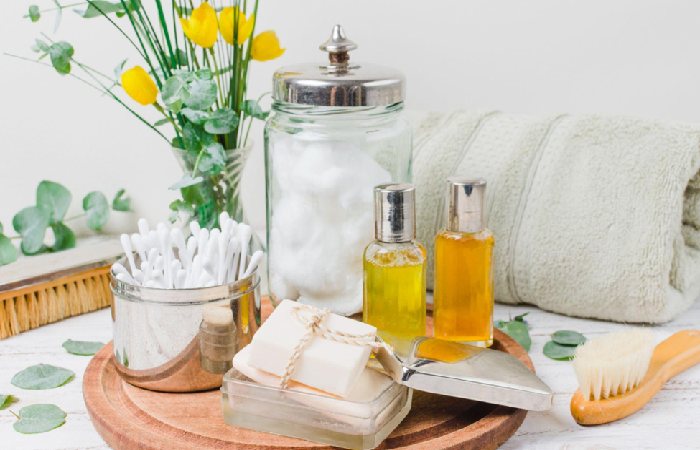Taking care of yourself isn’t selfish. It’s essential. Yet so many of us push our own wellbeing to the bottom of the priority list, focusing on work deadlines, family obligations, and endless to-do lists while neglecting the foundation that makes everything else possible: our health.
True wellness extends far beyond the absence of illness. It encompasses physical health, mental clarity, emotional balance, and the confidence that comes from knowing you’re doing right by your body. When we invest in ourselves through thoughtful self-care practices, proper hygiene routines, and addressing health concerns proactively, we create a positive ripple effect that touches every area of our lives.
This comprehensive guide explores the interconnected aspects of personal wellness, from the intimate health practices many feel uncomfortable discussing to the dental care decisions that impact both health and self-esteem. We’ll examine why these seemingly separate topics share common ground in the broader journey toward holistic wellbeing and lasting confidence.
Understanding the Foundation: Why Personal Hygiene Matters More Than You Think
Personal hygiene forms the cornerstone of overall health, yet conversations about certain aspects remain surprisingly taboo. We readily discuss skincare routines and dental care, but topics like intimate hygiene often get swept under the rug, leaving many people confused, misinformed, or unnecessarily worried about perfectly normal aspects of their bodies.
The reality is that every part of our body deserves appropriate care tailored to its specific needs. The skin on your face requires different treatment than the skin on your hands, and intimate areas have their own unique requirements for maintaining health and comfort. Ignoring these differences or using inappropriate products can lead to discomfort, irritation, and even health complications.
Women’s intimate health, in particular, deserves more open, honest discussion. The vaginal area maintains its own delicate pH balance and ecosystem of beneficial bacteria that protect against infections and maintain comfort. This natural balance can easily be disrupted by harsh soaps, douching, perfumed products, or even well-intentioned but misguided hygiene practices.
Many women struggle with questions about what’s normal, what products are safe, and how to maintain freshness without causing harm. General body soaps and shower gels often contain harsh detergents, synthetic fragrances, and alkaline pH levels unsuitable for intimate areas. These products can strip away protective natural oils, disrupt beneficial bacteria, and cause irritation, itching, or increased susceptibility to infections.
The solution lies in using products specifically formulated for intimate care. Quality intimate wash for women products are designed with gynecologically-tested formulations that respect the vaginal pH balance while providing gentle cleansing. These specialized washes contain mild surfactants, are typically fragrance-free or lightly scented, and include ingredients that support rather than disrupt the area’s natural protective mechanisms.
Understanding when and how to use these products matters too. The vagina is self-cleaning and doesn’t require internal washing, which can actually cause harm. External cleansing of the vulva with appropriate products once daily during your regular shower routine typically suffices. During menstruation or after exercise, you might cleanse twice daily, but over-washing can be counterproductive even with gentle products.
Beyond product selection, other factors influence intimate health. Cotton underwear allows better air circulation than synthetic fabrics. Avoiding tight clothing that traps moisture reduces infection risk. Changing out of wet swimsuits or sweaty workout clothes promptly prevents creating environments where problem-causing bacteria thrive. Staying hydrated supports overall health including proper vaginal lubrication.
These practices aren’t about achieving some artificial standard of “freshness” promoted by marketing. They’re about maintaining the health of a part of your body that impacts daily comfort, physical health, and intimate relationships. When you feel clean, comfortable, and confident in your body, that assurance radiates outward into other aspects of life.
The Mind-Body Connection: How Physical Health Impacts Mental Wellbeing
The relationship between physical and mental health operates as a two-way street. Physical discomfort, health concerns, or feeling unhappy with aspects of our appearance can significantly impact mood, self-esteem, and overall mental wellbeing. Conversely, stress, anxiety, and depression often manifest in physical symptoms and can lead to neglecting self-care routines.
This interconnection means that addressing physical health concerns often produces mental and emotional benefits that extend far beyond the immediate physical improvement. When we take proactive steps to resolve health issues or enhance aspects of our appearance that affect our confidence, we’re investing in our psychological wellbeing simultaneously.
Consider how chronic discomfort in any area of the body affects daily life. Whether it’s persistent headaches, digestive issues, skin problems, or intimate health concerns, ongoing physical discomfort drains mental energy, increases irritability, and reduces overall quality of life. Successfully addressing these physical concerns often leads to improvements in mood, energy levels, and outlook that surprised many people with their magnitude.

Similarly, feeling self-conscious about visible aspects of our appearance can create persistent background anxiety that affects social interactions, professional confidence, and intimate relationships. While building self-acceptance remains important, there’s nothing wrong with addressing aspects of our appearance that genuinely bother us when safe, effective solutions exist.
Mental health support becomes especially important during periods of health challenges or when considering significant changes. Talking through concerns, expectations, and motivations with trusted friends, family, or mental health professionals helps ensure decisions align with your authentic needs and values. This support network also provides crucial assistance during recovery periods or adjustment phases.
Oral Health: The Overlooked Pillar of Overall Wellness
Most people understand that oral health matters, yet many fail to grasp just how significantly dental health impacts overall physical and mental wellbeing. Your mouth isn’t isolated from the rest of your body. Oral bacteria can enter the bloodstream, potentially affecting heart health, diabetes management, pregnancy outcomes, and inflammatory conditions throughout the body.
Beyond these systemic health connections, dental health profoundly affects quality of life in immediate, tangible ways. Tooth pain ranks among the most debilitating forms of discomfort, making eating, sleeping, and concentrating difficult or impossible. Dental problems can lead to nutritional deficiencies when pain prevents eating certain foods. Bad breath creates social anxiety and relationship challenges.
The cosmetic aspects of dental health carry significant psychological weight too. Feeling self-conscious about your smile affects how you present yourself to the world. Many people with dental concerns report avoiding smiling in photographs, covering their mouths when laughing, or feeling anxious in social and professional situations. These behaviors, while protective in the moment, reinforce self-consciousness and limit full engagement with life.

Preventive care forms the foundation of good oral health. Regular brushing with fluoride toothpaste, daily flossing, limiting sugary foods and acidic beverages, and routine dental checkups catch problems early when they’re most treatable. Despite knowing these basics, many adults admit to inconsistent oral hygiene habits, often due to time pressures, sensitivity issues that make brushing uncomfortable, or simple procrastination.
When prevention falls short or accidents occur, addressing dental problems promptly prevents them from worsening. That small cavity becomes a large one requiring more extensive treatment. Ignored gum disease progresses from treatable gingivitis to serious periodontitis that can result in tooth loss. A cracked tooth that could have been repaired with a crown instead requires extraction when left untreated.
Tooth loss deserves particular attention due to its cascading effects on health and wellbeing. Missing teeth affect chewing ability, potentially leading to digestive problems and nutritional deficiencies. Adjacent teeth may shift position, creating bite problems and accelerating wear on remaining teeth. Bone loss in the jaw occurs where teeth are missing, potentially changing facial structure over time.
Modern dentistry offers excellent solutions for tooth loss. For those seeking permanent, natural-feeling tooth replacement, advanced options like dental implants sydney based practices provide titanium posts surgically placed in the jawbone that fuse with the bone over time, creating stable foundations for artificial teeth. These implants function like natural teeth, prevent bone loss, and don’t require alteration of adjacent healthy teeth like traditional bridges do.
The process typically involves several stages over months, beginning with thorough examination and planning, followed by surgical implant placement, healing time for osseointegration (bone fusion), and finally attachment of the permanent crown or prosthetic tooth. While this timeline requires patience, the long-term results offer durability and functionality that make implants the gold standard for tooth replacement.
Not everyone needs or wants implants, of course. Bridges, partial dentures, and complete dentures serve different situations and preferences. What matters most is addressing tooth loss rather than accepting it as inevitable, and choosing solutions aligned with your health needs, lifestyle, and budget in consultation with qualified dental professionals.
The Confidence Factor: Cosmetic Dentistry and Self-Esteem
While dental health focuses on function and preventing disease, cosmetic dentistry addresses appearance. Some dismiss cosmetic procedures as vanity, but this perspective overlooks how significantly appearance affects psychological wellbeing and social experience. Your smile is often the first thing people notice, and feeling good about it contributes meaningfully to confidence.
Discolored, stained, or yellowed teeth represent one of the most common aesthetic concerns. Teeth naturally darken with age as enamel thins and the underlying dentin shows through more prominently. Coffee, tea, red wine, tobacco, and certain foods accelerate staining. Some medications cause intrinsic discoloration from within the tooth structure. The result can make people appear older, less healthy, or less professional than they are.
Professional whitening treatments address these concerns far more effectively than over-the-counter products. For residents in Melbourne’s inner suburbs seeking expert solutions, teeth whitening Richmond dental practices offer professional-strength treatments that safely lighten teeth several shades beyond what drugstore strips or toothpastes achieve. These treatments use higher-concentration bleaching agents applied under professional supervision, minimizing sensitivity while maximizing results.
Professional whitening typically comes in two forms: in-office treatments that produce dramatic results in a single visit, and take-home custom-tray systems that allow gradual whitening over a week or two. In-office treatments use powerful bleaching gels activated by special lights, producing noticeable improvement in about an hour. Take-home systems provide more control over the process and often less sensitivity, though they require commitment to wearing the trays for specified periods daily.
Results vary based on the original tooth color, the type and severity of staining, and individual factors like enamel thickness and tooth sensitivity. Surface stains from coffee or wine respond excellently to whitening. Deep intrinsic stains from medications like tetracycline prove more challenging but still show improvement. Maintaining results requires avoiding staining substances when possible and occasional touch-up treatments.
Whitening represents just one option in cosmetic dentistry’s toolbox. Veneers, bonding, contouring, orthodontics, and gum reshaping address various aesthetic concerns. The best approach depends on your specific situation, goals, budget, and overall oral health. Comprehensive consultation with experienced cosmetic dentists helps identify which treatments will achieve desired results while preserving dental health.
That said, realistic expectations matter enormously. Cosmetic dentistry can enhance your natural smile, not completely transform you into someone else. It can’t fix relationship problems, guarantee career success, or solve deeper self-esteem issues. Approaching cosmetic treatments as one component of overall self-care, not a magical solution to all life’s challenges, leads to satisfaction with results.
Creating Your Personal Wellness Routine
Understanding the various aspects of wellness is one thing. Actually implementing consistent self-care practices is another. Life gets busy. Other obligations feel more urgent. Self-care gets postponed until that mythical “later” that never quite arrives. Building sustainable wellness routines requires intentionality, realistic expectations, and strategies for maintaining consistency.
Start by recognizing that wellness isn’t all-or-nothing. You don’t need to overhaul your entire life simultaneously or achieve perfection in every area. Small, consistent actions compound over time into significant improvements. Adding one positive habit or addressing one neglected health concern creates momentum that makes subsequent changes easier.
Prioritization helps when everything seems important but time feels limited. Which health concerns or self-care areas would most significantly improve your quality of life if addressed? Where are you experiencing discomfort, self-consciousness, or health risks? These become your starting points, not because other areas don’t matter but because you need somewhere to begin.
Creating systems rather than relying on motivation alone increases follow-through. Linking new habits to existing routines works well. Perhaps you use your specialized intimate wash right after your regular shower, making it automatic rather than requiring separate decision-making. Maybe you schedule dental appointments a year in advance and set phone reminders, removing the friction of having to remember and book later.
Removing obstacles to healthy behaviors makes consistency easier. If you don’t floss because you forget, keep floss in multiple visible locations. If you skip moisturizing because your product is in another room, keep a duplicate where you’ll actually use it. If you avoid dental appointments due to anxiety, specifically seek practices experienced in treating anxious patients and discuss sedation options.
The Financial Reality: Investing in Health and Wellbeing
Quality healthcare and self-care products cost money. This reality creates genuine barriers for many people and forces difficult priority-setting decisions. Understanding how to approach the financial aspects of wellness helps make informed choices aligned with both health needs and budget constraints.
Prevention typically costs less than treatment. The specialized intimate wash that prevents infections costs far less than treating those infections. Regular dental checkups that catch small cavities cost less than root canals or implants later. Sunscreen preventing skin damage costs less than treating skin cancer. These preventive investments often represent the most cost-effective health spending.
When treatment becomes necessary, cost should factor into decision-making but not drive it exclusively. The cheapest option isn’t always the best value, especially when considering quality, longevity, and potential complications. However, the most expensive option isn’t automatically superior either. Thorough research, seeking multiple professional opinions, and honest discussion about costs and alternatives with healthcare providers leads to wise decisions.
For self-care products, quality usually exceeds quantity in importance. One excellent product you’ll actually use consistently provides better value than multiple cheaper alternatives that sit unused because they don’t work well or cause irritation. Reading reviews, understanding ingredients, and sometimes trying small sizes first helps identify products worth investing in.
Conclusion: Your Wellbeing Journey Starts Now
Comprehensive wellness isn’t a destination you reach and then maintain effortlessly forever. It’s an ongoing journey of learning about your body, addressing concerns as they arise, and consistently choosing to prioritize your health and confidence. Some days will go perfectly. Many won’t. What matters is the overall trajectory and your commitment to showing up for yourself.
Starting feels hardest. Inertia and overwhelm keep many people stuck in unhealthy patterns or avoiding needed care. Choose one area, one small step, one appointment to schedule or product to try. That first action breaks the inertia and builds momentum for subsequent improvements.
Remember that seeking professional guidance isn’t admitting weakness or failure. Whether consulting gynecologists about intimate health concerns, dentists about oral health needs, or mental health professionals about the psychological aspects of wellness, expert input helps you make informed decisions and avoid costly mistakes. Healthcare providers want to help. That’s literally why they chose their professions.
Your body carries you through every experience of your life. It deserves care, respect, and investment. By attending to all aspects of your physical health, from the most private to the most visible, you create a foundation for living fully, engaging confidently, and enjoying the wellbeing that makes everything else possible. That journey starts with a single step. Why not take it today?



